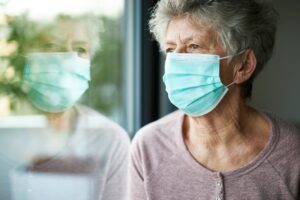Older Adults Still Inactive and Isolated Due to Pandemic
A new survey examined the effects of COVID-19 on older adults. The results concluded that even now, older adults are facing anxiety, which may result in isolation, thus keeping them less active, as reported by McKnights.
Walgreens conducted this quantitative study which included about 1,000 older adults over the age of 55 years. Participants were questioned about their feelings regarding socialization after the pandemic. The study concluded that 42 percent of older adults are now socially less active than compared to before the pandemic. Additionally, about 20 percent feel more isolated than before.
Participants attributed their increased isolation to the fear of catching the virus. This has prevented them from participating in activities they would previously enjoy. About 60 percent stated they were not able to see their families and friends on a regular basis anymore. Thirty-six percent miss going on vacations and about 28 percent said they miss stepping out to run errands or go shopping. About 19 percent expressed feeling disconnected to their community.
Black seniors feel more affected by this phenomenon. About 43 percent said they don’t participate in activities in order to protect themselves from sickness. This is 16 percent more than other older adults who are in the same age range.
Vaccination status also played a role in the participants’ activity levels. Approximately 70 percent felt better socializing if they were surrounded by individuals who were vaccinated against COVID-19, the flu, pneumonia and shingles.

Cornerstone Rehab clinicians provide rehabilitation therapy to older adults in skilled nursing facilities, helping them to become more active and independent. Our clinicians are skilled in providing physical, occupational and speech therapy to such patients.
Learn more about our job openings for physical therapists, occupational therapists and speech-language pathologists. For a complete list of career opportunities at CSR click here.
